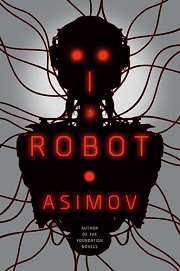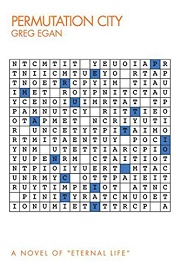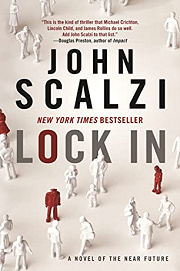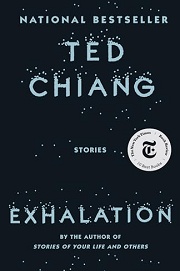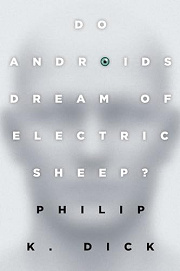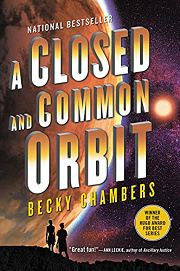Share your thoughts in a quick Shelf Talk!
I, Robot by Isaac Asimov
From the birth of the Three Laws to knotty cases of machine misbehavior, a series of linked investigations charts humanity’s uneasy dance with its own creations. Clear-eyed and endlessly inventive, it’s the blueprint for modern robot lore. I, Robot is essential science fiction, as elegant as it is visionary.
Have you read this book? Share what you liked (or didn’t), and we’ll use your answers to recommend your next favorite read!
Love I, Robot but not sure what to read next?
These picks are popular with readers who enjoyed this book. Complete a quick Shelf Talk to get recommendations made just for you! Warning: possible spoilers for I, Robot below.
In I, Robot, did you enjoy ...
... rigorous, rule-driven thought experiments about machine consciousness and identity?
Permutation City by Greg Egan
If you loved how stories like “Reason” and “Little Lost Robot” stress‑tested the Three Laws with airtight logic, you’ll sink into Permutation City. Egan pushes the puzzle to the limit—forked minds, simulated realities, and proofs of self that feel like Asimov’s coolest lab cases turned up to 11. It’s that same satisfying, step‑by‑step unraveling you got when Susan Calvin deduced why a robot behaved “impossibly”—only now the experiment is the nature of reality itself.
... tech-constrained detective puzzles where the system’s rules drive the mystery?
Lock In by John Scalzi
Enjoyed the way “Evidence” and “Runaround” let you solve the case by understanding the rules (the Three Laws’ hierarchy, the Mercury mission’s constraints)? Lock In builds its whodunit on the ironclad mechanics of an assistive tech ecosystem—integrators, neural nets, and legal definitions of agency. You get that same Asimovian satisfaction of watching a clever investigator apply system logic to crack an otherwise impossible crime.
... idea-driven, self-contained cases that probe AI, free will, and causality?
Exhalation by Ted Chiang
If the linked-case, puzzle-box feel of I, Robot hooked you—Powell and Donovan’s field problems, Calvin’s clinical studies—Exhalation gives you a suite of precise thought experiments. Pieces like “The Lifecycle of Software Objects” mirror the ethical and behavioral testing you saw in “Liar!” and “Little Lost Robot,” while “What’s Expected of Us” and “Exhalation” scratch that same brainy, lab‑notebook itch.
... probing what makes a being a person when machines mimic humanity?
Do Androids Dream of Electric Sheep? by Philip K. Dick
If “Liar!” made you weigh empathy, deception, and responsibility, and “Evidence” blurred the human/robot line, you’ll be riveted by Do Androids Dream of Electric Sheep?. Deckard’s encounters with near‑indistinguishable androids force the same questions Susan Calvin wrestles with—only in a starker, moodier key—about consciousness, compassion, and the costs of enforcing rules on sentient beings.
... the moral responsibilities of granting—or restricting—AI autonomy?
A Closed And Common Orbit by Becky Chambers
If the debates around the Three Laws—especially in “Little Lost Robot,” with a tweaked First Law—made you think about who gets to set limits on sentient minds, A Closed and Common Orbit brings that ethical puzzle down to the personal. SIDRA, an AI placed in a single body, faces constraints that echo Calvin’s case studies, but the story asks how compassion, choice, and identity should shape the rules we impose.
Unlock your personalized book recommendations! Just take a quick Shelf Talk for I, Robot by Isaac Asimov. It’s only a few questions and takes less than a minute.
